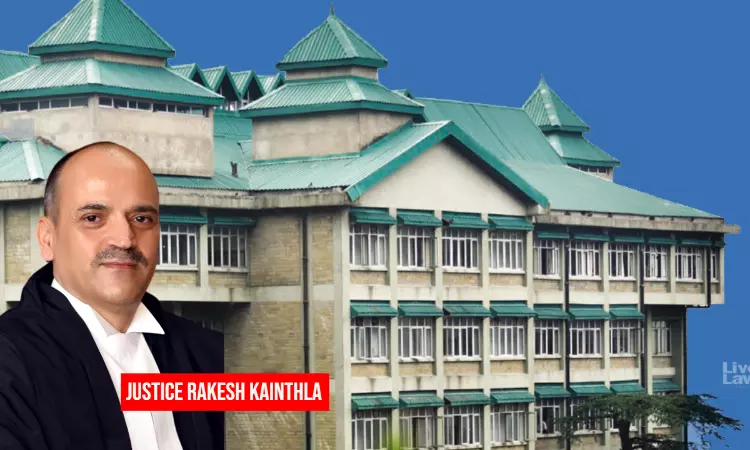- Home
- /
- High Courts
- /
- Himachal Pradesh High Court
- /
- “Sali” Is Filthy Abuse But Not...
“Sali” Is Filthy Abuse But Not 'Intentional Insult' Causing Breach Of Peace: HP High Court Sets Aside S.504 IPC Conviction
Mehak Aggarwal
29 Oct 2025 10:50 AM IST
The Himachal Pradesh High Court has held that mere usage of the word "sali", though amounting to filthy abuse, does not fulfil the ingredients of “intentional insult” under Section 504 of the Indian Penal Code unless it provokes or is likely to provoke breach of peace.Justice Rakesh Kainthla remarked that: “In the present case, the use of the term 'sali' amounts to filthy abuse....
The Himachal Pradesh High Court has held that mere usage of the word "sali", though amounting to filthy abuse, does not fulfil the ingredients of “intentional insult” under Section 504 of the Indian Penal Code unless it provokes or is likely to provoke breach of peace.
Justice Rakesh Kainthla remarked that: “In the present case, the use of the term 'sali' amounts to filthy abuse. The victim/informant did not state that this term or the filthy abuses induced her to commit breach of peace”.
Thus, the Court remarked that: “therefore, the essential ingredient that the insult should have induced the informant to commit breach of peace is missing, and the Trial Court erred in holding that the ingredients of Section 504 of the IPC were satisfied”.
Background Facts:
The prosecution submitted that the complainant, Reeta Kumari, was confined in a room by her neighbours, the accused Lekh Ram and Meena Devi.
The complainant stated that after a wall fell between their adjoining properties, the accused came to her home, abused her, and locked her inside a room, from which the police later rescued her.
The trial court noted that the complainant's version was supported by other witnesses and by physical evidence. It was observed that the key produced by the accused Meena Devi later confirmed that she had abused and locked the complainant in a room.
Further, the Trial Court remarked that even though a civil dispute was pending, the accused had no right to take the law into their own hands.
Thus, the Trial Court convicted both the accused under Sections 342 and 504 read with Section 34 IPC.
Thereafter, the appellate court upheld the findings of the Trial Court.
Aggrieved, the petitioners approached the High Court, contending that the wall was constructed by the accused on their own land.
The petitioners further contended that the benefit of the Probation of Offenders Act should have been granted to the accused.
The High Court observed that there was enough evidence to uphold a conviction under Section 342 of the Indian Penal Code.
However, the Court remarked that the conviction under Section 504 of the Indian Penal Code was unsustainable, as there was no proof that the abusive words were intended to provoke a breach of peace.
Case Name: Lekh Ram & another v/s State of H.P.
Case No.: Cr. Revision No.517 of 2024
Date of Decision: 15.10.2025
For the petitioners: Mr.Vishal Singh Thakur, Advocate.
For the respondents: Mr. Prashant Sen, Deputy Advocate General.



